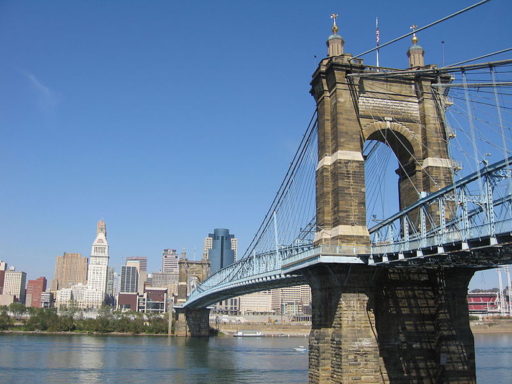R. H. Blyth writes several times in his five-volume Zen and Zen Classics that the salvation of the world, the happy future of the human race on this Earth, lies in animism. That idea recurs to me often these days. This post is a riff on what I think Blyth could have meant by that.
Recently I was up for several hours in the night, having been awakened by a sick child and finding myself unable to get back to sleep. I went downstairs, sat on the couch, and stared at the huge ship my sons had built the evening before. We have a set of large wooden dominoes from England, and we have another set of old, heavily used wooden blocks (I think from Germany) of various shapes including pillars, arches and slanted roofs, which would most typically be used to construct things that look like classical temples or a medieval cloister or even what my boys and I refer to as a Japanese castle. The great ship was constructed using the entirety of both sets of these blocks.
I taught my sons how to make a long hull with a stable deck out of the dominoes, saving the German blocks for the superstructure and outrigging, and ever since they’ve built many vessels and christened them with names such as the Irish Rover Caspia (this shortly after we had read Prince Caspian and had been listening to the Irish Rovers), or the Lady Elgin, which was the name of a famous wreck in Lake Michigan about which I’ve read to them from Dana Thomas Bowen’s Shipwrecks of the Lakes. Although I’d been told the name of the ship I stared at from the couch in the dead of night, I forget it now.
But I know that the colossal thing, with its high towers and turrets and other battlements and bristling armaments, was a warship. Probably they had called it a man-of-war, for they know already a little about the different kinds of historical warship. Such matters we often discuss and play. I’ve tried (not seriously yet) to teach my sons the rudiments of swordsmanship in the backyard. We enjoy watching jousts. My older son wants to learn to shoot a bow. We build castles and there are terrible sieges, or sometimes they assemble the miniature knights I collected thirty years ago in tourneys and melées. The history of flight and seafaring, always bound up with warfare, are of abiding interest to us.
So much war. But war as play. War as romance and splendor and courage and daring. War as imagination—not war as it is fought now or has ever been fought. Not the nuclear war that looms in Ukraine. That last thought is what kept me up, staring at the mighty ship my sons had built. And as I sat and stared at their creation, which manifested such creativity on their part, such spirit—not to mention rare cooperation between the brothers—I recalled what Blyth said about animism. And when I thought of that, I thought of a famous phrase of Heidegger’s—Nur noch ein Gott kann uns retten—Only a god can save us.
The sentence comes from an interview Heidegger gave Der Spiegel in 1966. He meant that we are slouching—perhaps racing—towards a transhuman, technocratic, denatured, deracinated, disembodied future, and that only a new influx of the divine, the poetic—not the discursive thought of philosophy, not theory and policy, not the systematic exposition of classical metaphysics—would forefend against that future. But for many people and for a long time in the West the divine has been known chiefly by its absence and our longing for it, and the traditional forms of Western religion have been in abeyance, if not moribund.
And yet in what one might call, after Kierkegaard, the post-Christendom epoch of Christianity, our turning back to the divine—knowing now what we lost, what we gave up—goes through the lesser gods, those created divinities who, in an ontologically hierarchical cosmos, might dwell (to use a Heideggerian term) between us and the absolute divine, the Creator. These are the gods of animism, the genii locorum or spirits of places. The new Christianity will be a repaganized Christianity.
This was the case for Hölderlin two hundred years ago, about whom Heidegger had to say in the same interview: “For me, Höderlin is the poet who points into the future, who waits for a god.” No poet has sought with greater intensity to recover the pagan, animistic, immanent sense of the divine and fuse it with the Christian Story and sense of transcendence. And it is that kind of spiritualized localism which I intuit may be our only salvation from the transhuman future, and perhaps from atomic annihilation in the present.
I have been a reader of Hölderlin for many years. I took down his collected poems and read his hymns to the Virgin Mary and Patmos, his elegy “Bread and Wine” and his river poems (on the Main, the Neckar, the Rhine, the Ister). I read his hymn to a mysterious public worship that occurs in the draft “Conciliator, you that no longer believed in…” where he writes “For look, it is the Evening of Time, and / No longer alone the Father sits enthroned above.” They are fraught, paradoxical poems that display majestic architecture, and they brought me some peace.
In my novel Absolute Music the narrator speaks of translating Hölderlin’s early ode “Heidelberg.” I’d like to offer here my translation of that poem. I made this translation a number of years ago while I was in Cincinnati, and it was of Cincinnati that I thought as I made it, for that is one of the places where I have felt the divine.
Heidelberg
Long I’ve loved you and if only to please myself would call you Mother and give you an artless song: you, of the cities I’ve dwelled in fullest with a country beauty. Like the bird flying carelessly over hilltops, our bridge swings with casual strength, streaming traffic, over the current whose wavelets glance as they pass and blink at you. A time I was walking that bridge: and I was bound, frozen, as though charmed by gods, and right here, to me— so it seemed—into these hills’ heart the distance shone and called to me. And that young man, the river, he was drawn to the plain, nostalgic as the heart when, too beautiful and fearless, to sink in love throws itself in the flood of time. He was a fugitive, but you were like his source, you offered him cool shadows, and the riverbanks longed for our river, longed to glimpse in him their lovely reflections. Heavily over the valley the towers loomed, expert with fate, witnesses to every weather, to the river frozen over or in revolt, flooding foundations. But that day the sun was pouring eternal light on everything, on all the aging monuments covered in ivy; friendly woods asserting themselves against walls all the green density abloom, from the hilltops down along public stairs, reclining in ravines to the river, where your cheerful streets relax beneath fragrant parks.
Image courtesy of https://commons.wikimedia.org/wiki/File:2008-10-05_02_The_John_Roebling_Bridge.jpg
Jonathan Geltner lives in Ann Arbor MI with his wife and two sons. His translation of Paul Claudel’s Five Great Odes is available from Angelico Press and a novel, Absolute Music, is available from Slant. If you enjoy his posts at Close Reading, check out his new Substack, Romance and Apocalypse, for more frequent and in-depth essays on the places where literature and other arts meet religious ideas and experience.





